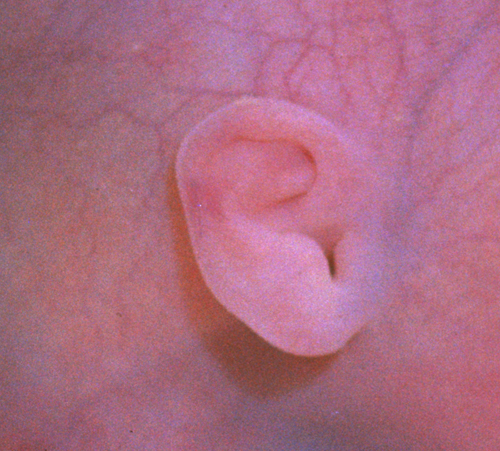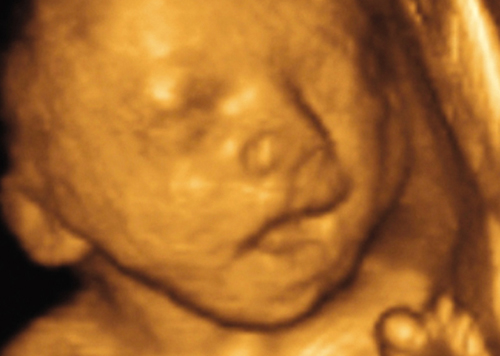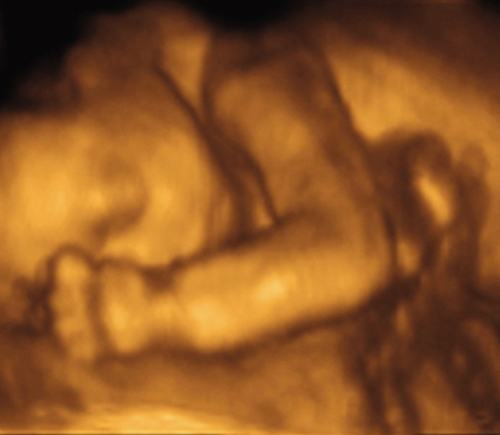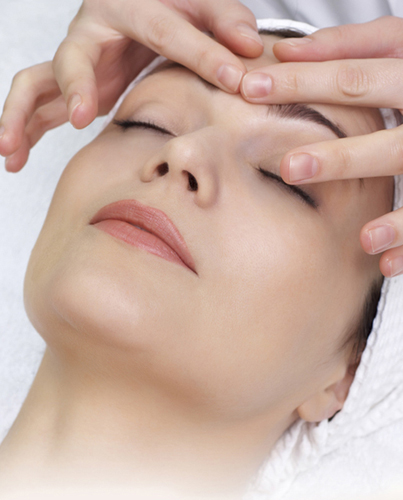You are 24 Weeks and 2 Days 110 days to go…
If you’re feeling tired, you’re not alone. Your developing baby has been yawning for some weeks now.
Your baby today
In the uterus, your baby’s ears not only have fluid around them
but also inside. This is part of the reason that he can only hear
certain lower sound frequencies. Yawning may be a way to unblock the
ears, and from now on your baby spends a lot of time yawning.

All babies are known to yawn in the uterus,
although the reason why they do this remains unclear. Yawning is often
accompanied by shrugging of the shoulders or stretching, exactly as you
would do when tired. Unborn babies have even been seen to rub their
eyes!
Your baby first
started yawning at around 15 weeks and has gradually yawned more and
more frequently. The precise function of yawning for the baby remains in
doubt and there are several hypotheses. While it’s difficult to imagine
that an unborn baby is actually tired, it has been found that babies
who are anemic yawn much more frequently than others. Another theory is
that yawning may help the unborn baby to regulate the amount of fluid or
blood flow he has within his lungs. Or yawning may simply be a
primitive reflex, a remnant from an earlier evolutionary stage, with no
current function.
Whatever the reason for
yawning, the early stage at which this develops in the unborn baby, and
the fact that all mammals are known to yawn in the uterus, does suggest
that it plays an important, though unknown, role in fetal development.
Many unborn babies have been filmed yawning on 4D scans, which give a very up close view of fetal behavior.

Women aged over 40 are more than twice as likely to have left-handed babies.
This is according to a
Canadian study and may be related to the fact that older women are more
likely to experience complications in pregnancy and have more arduous
deliveries. Several studies show a correlation between left-handedness
and birth stress.
… Your baby
Listen to Mommy
Your developing baby’s ears are structurally complete,
and studies show that he can hear clearly now. Far from cushioning him
against noise, the amniotic fluid that surrounds your baby has excellent
sound-conducting properties. Your heartbeat and digestive system
provide a constant background rhythm, but he’s also aware of other
sounds.
Talking to your baby will
help you to bond: research indicates that newborns recognize—and turn
toward—the sound of their mother’s voice in preference to other female
voices. To begin with he’ll hear deeper voices more clearly, but later
he’ll register higher-pitched sounds. He will, of course, become more
familiar with his mother’s voice because this is what he will hear most
often.
You may have
noticed that sudden noises make your baby startle. In one study,
ultrasound scans of fetuses showed that they had a “blink-startle”
response to loud noises from around 26 weeks.
You are 24 Weeks and 3 Days 109 days to go…
Your body is working hard to grow your baby, so take care of it by enjoying some pampering.
Your baby today
Here the baby is lying with an arm up to the face and the face
lying on the placenta. The eyes are shut at this time and it will be a
couple of weeks before they start to open. The hand is held in the most
relaxed position, with the fingers slightly curled.

Think of your pregnancy as a time to focus on yourself and your body; once your baby is born, the majority of your focus will be on baby care.
If you have the time and
money, treat yourself to a day at a spa. Most spas will have special
packages for pregnant women. Spending time at a spa, where you can go
for a gentle swim, have some pampering treatments, and enjoy being in a
tranquil environment, is a great way to relax and unwind. If a spa day
is out of the question, create your own at home. Run a bath, add some
relaxing music (for a background soundtrack), light some candles, and
relax. If you don’t want to be disturbed, let your partner know and turn
off the phone.
Pregnancy massage (see You are 20 Weeks and 4 Days)
either from a professional or your partner, can be very therapeutic,
both physically and emotionally. Another great treatment to have at this
stage is a pedicure; you’ll increasingly be unable to see your toes,
let alone reach them, so it’s a treat for someone else to take care of
them for you.
Now is the time to indulge yourself in a little pampering. When booking beauty treatments, always make it known that you’re pregnant.

… Doctor
| Q: |
I haven’t felt my baby move for four hours. Should I be worried?
|
| A: |
Contact your doctor and explain your baby’s usual pattern of movements. She can examine you and provide reassurance.
If you’re not
familiar with your baby’s movements, lie down—he is more likely to sleep
when you’re active. Try encouraging him to move around.
|
On your feet
You may now find it more of a struggle
to be on your feet, especially for long periods of time. Weight gain,
changes in your center of gravity (particularly during the second and
third trimesters), and hormones can cause foot pain and swelling .
The pregnancy hormones that relax your joints ready for childbirth can
also work to loosen the ligaments in your feet and hips, which can cause
some discomfort.
To minimize foot discomfort:
Wear sports shoes
that have a good arch support to help reduce strain on your spine. They
may also prevent a condition called plantar fascitis—this is where the
large ligament that connects the heel to the ball of the foot becomes
inflamed.
Avoid wearing high-heeled shoes. In addition to being uncomfortable, they may make you unsteady on your feet and cause you to fall.
Ensure that your shoes fit
correctly and invest in new ones if not. Some pregnant women’s feet
expand by a size, and never return to their normal size after pregnancy.
Get regular exercise, and avoid standing for long periods. Take regular breaks if your job involves standing.